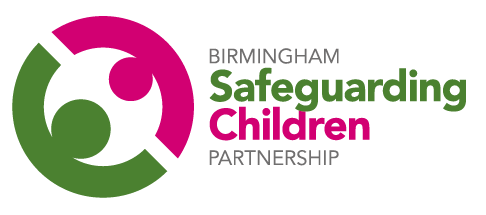Learning from ‘Child A’ Local Child Safeguarding Practice Review: Adultification and Intersectionality
In October 2023, Birmingham and West Sussex Safeguarding Children Partnerships jointly published the ‘Child A’ Local Child Safeguarding Practice Review (LCSPR); the review found that services involved with the family didn’t fully understand Child A’s lived experience and the impact of her childhood trauma. This was an incredibly distressing and unusual case where tragically an innocent young man lost his life. You can download the full report and supporting documentation on our BSCP2020-21/02 webpage.
In November 2023, to support with dissemination of the learning to front-line practitioners both partnerships also jointly hosted the webinar ‘Are you listening to me?’. The session began with Joanna Nicolas, the Lead Reviewer, giving a detailed overview of the case. She discussed the emerging themes and learning identified from the review, which provided attendees with a clearer understanding of Child A’s background and her interactions with safeguarding services. This was then followed by a talk delivered by Jahnine Davis (Leading Specialist in Adultification) on adultification and intersectionality, and the impact this has on safeguarding practice from a practitioner’s perspective. Jahnine’s presentation also gave valuable context to the impact adultification and intersectionality had in this particular case, and how it shaped Child A’s, and her mother’s, lived experience.
Jahnine emphasised the importance of being aware of the impact of adultification on frontline practice, “If our approaches to children are universal, if we have standardised assessments, then we have to think about how they potentially miss or overlook the experiences of those who experience those intersectional challenges and experiences of discrimination and bias”.
Adultification refers to the societal perception or treatment of children, especially belonging to marginalised and racialised groups, as more mature, older, or responsible than they actually are. This often results in these children being held to higher standards of behaviour, discipline, or responsibility compared to their peers, potentially depriving them of their childhood and leading to various negative consequences, including biases in the education system or the criminal justice system.
Intersectionality is a concept used to understand how various aspects of an individual’s social and political identities—such as race, gender, class, sexuality, and ability—intersect and interact, creating unique and interconnected experiences of discrimination or privilege. It acknowledges that these different aspects of identity cannot be considered in isolation and that systems of oppression or privilege are interlinked, influencing an individual’s experiences in complex ways. Developed by Kimberlé Crenshaw, intersectionality aims to highlight and address the overlapping and compounding effects of multiple forms of discrimination or advantage.
Watch the webinar in full below.
Download the PowerPoint slides
We hope you find the learning in the LCSPR and webinar useful, please feel free to share these resources in your own areas of practice.
